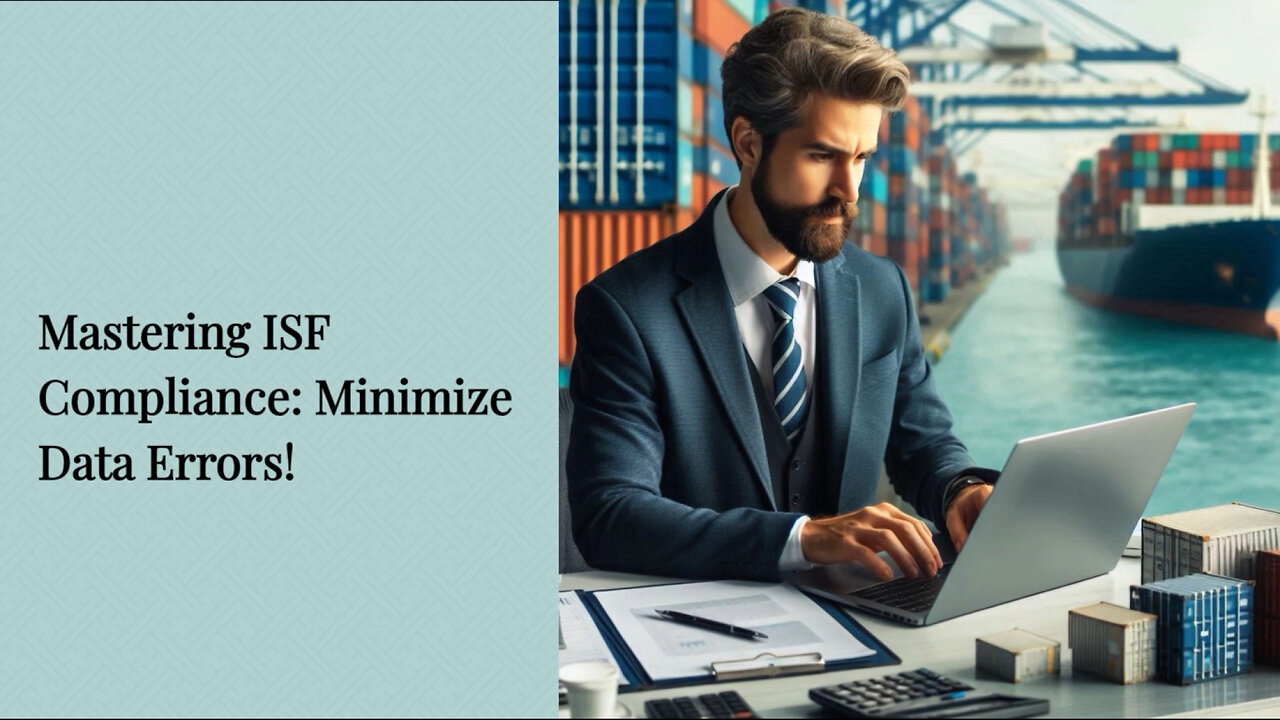Premium Only Content

Mastering ISF Compliance: Best Practices and Minimizing Data Discrepancies
License To Import // 323-578-6432 // file@licensetoimport.com // www.licensetoimport.com
In this video, we discuss the best practices for ensuring Importer Security Filing (ISF) compliance and minimizing data discrepancies in customs brokerage. ISF is a mandatory filing requirement for importers to provide specific information about their shipments to US Customs and Border Protection before the cargo is loaded onto a vessel bound for the United States. The first best practice for ISF compliance is ensuring accurate and complete data entry, as any inaccuracies or missing information can lead to delays, fines, or cargo holds. Utilizing a customs broker is also recommended, as they have in-depth knowledge of ISF requirements and can guide you through the process. Maintaining proper documentation, implementing an internal monitoring system, and leveraging technology are additional best practices to consider for efficient ISF compliance.
#usimportbond #isfcustomsbroker #uscustomsclearing #isfentry
Video Disclaimer Here: This video is solely for education and is not endorsed by any US government agency.
0:33 - ISF is mandatory electronic filing for importers to provide information to CBP
1:01 - Best practices include accurate data entry, using a customs broker, maintaining proper documentation, internal monitoring system, and leveraging technology
1:58 - Detailed records and internal controls are essential for compliance
-
 LIVE
LIVE
Scottish Viking Gaming
3 hours ago💚Rumble :|: Sunday Funday :|: If you can't Beat them...EAT THEM!!
325 watching -
 1:46:47
1:46:47
Game On!
17 hours ago $5.41 earnedExpert Super Bowl LIX Picks, Preview, and Best Bets!
44.9K5 -
 36:50
36:50
Mrgunsngear
18 hours ago $10.33 earnedPresident Trump's Executive Order To The ATF: This Could Be Huge!
34.4K37 -
 25:48
25:48
Adam Does Movies
21 hours ago $1.34 earnedTop 10 Reasons Why Emilia Pérez Is Complete TRASH!
19.9K7 -
 26:56
26:56
MYLUNCHBREAK CHANNEL PAGE
1 day agoUnder The Necropolis - Pt 6
175K46 -
 6:03
6:03
Tactical Advisor
1 day agoEverything New From Panzer Arms 2025
6.8K -
 1:15:59
1:15:59
CarlCrusher
18 hours agoUFOs & Paranormal Phenomena are Not Imaginary | Dr Jim Segala MUPAS Phase 2
6.5K1 -
 12:44
12:44
BlackDiamondGunsandGear
14 hours agoRadian Ramjet & Afterburner / Worth it? / Which Shoots Flatter?
23.2K3 -
 49:10
49:10
CharLee Simons Presents Do Not Talk
10 days agoDO NOT TALK with GIL MAZA & SAM ANTHONY (Mass Deportation Results)
13K -
 8:07
8:07
Tundra Tactical
19 hours ago $4.20 earnedHiPoint Embraces The MEME Yet Again.
48.1K6